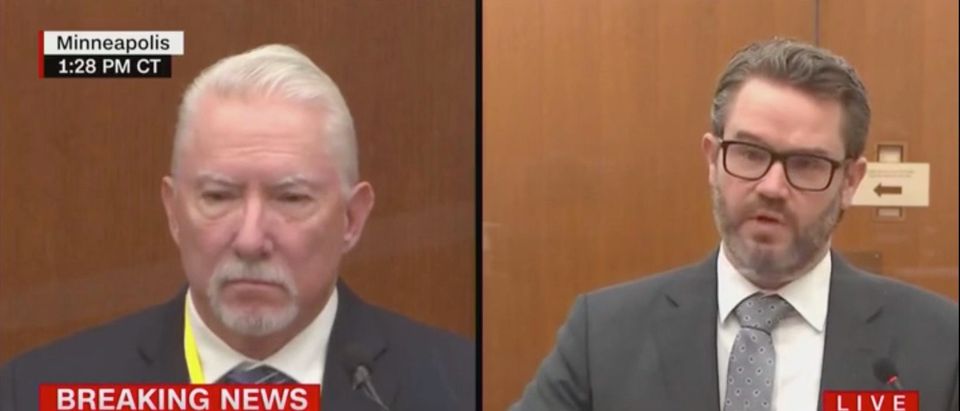Barry Brodd, a defense witness who took the stand Tuesday during the trial of former Minneapolis police officer Derek Chauvin, said that Chauvin’s use of force against George Floyd was “justified.”
“I felt that Derek Chauvin was justified and was acting with objective reasonableness following Minneapolis police department policy and current standards of law enforcement in his interactions with Mr. Floyd,” said Brodd, a use-of-force expert and former police officer who trained officers for 35 years.
Brodd discussed the Supreme Court case Graham v. Connor, which determined that an objective reasonableness standard should apply to claims of excessive force. He named the three factors—the severity of the crime, imminent threat, and active resistance or evading arrest—that determine what an objectively reasonable officer should do in a given set of circumstances. (RELATED: Judge Declines To Sequester Jury In Chauvin Trial Following Shooting, Riots In Minneapolis)
When conducting an analysis of a use-of-force situation, Brodd said that he considers whether there was a justification for the detention, the level of resistance exhibited by the suspect, and what the officer did to overcome that resistance. Brodd noted that he felt that Floyd’s level of active resistance actually justified a higher use of force than what the officers used.
Brodd told defense attorney Eric Nelson that a suspect being under the influence of drugs has “quite a large impact” on an officer’s use of force because they could behave erratically, not feel pain, or not understand commands. Floyd was under the influence of fentanyl when he died and the defense has sought to make that a central point of the trial, especially concerning the cause of death.
“I felt that Officer Chauvin’s interactions with Mr. Floyd were following his training, following current practices in policing, and objectively reasonable,” Brodd said.
The defense witness said that he does not consider the prone position, where a suspect is held on the ground on their stomach by an officer, use of force because it is a “control technique” that “doesn’t hurt.” Upon further questioning by the prosecution, Brodd said that the prone position – which is the position Chauvin held Floyd in for over nine minutes – could possibly cause pain.
Tuesday was the first day that the defense called their own witnesses after the prosecution rested their case. Prosecutors called 38 total witnesses over 11 days in an attempt to prove that Floyd died because Chauvin kneeled on his neck, according to USA Today. Several of the prosecution’s witnesses said that Chauvin’s use of force was excessive.


